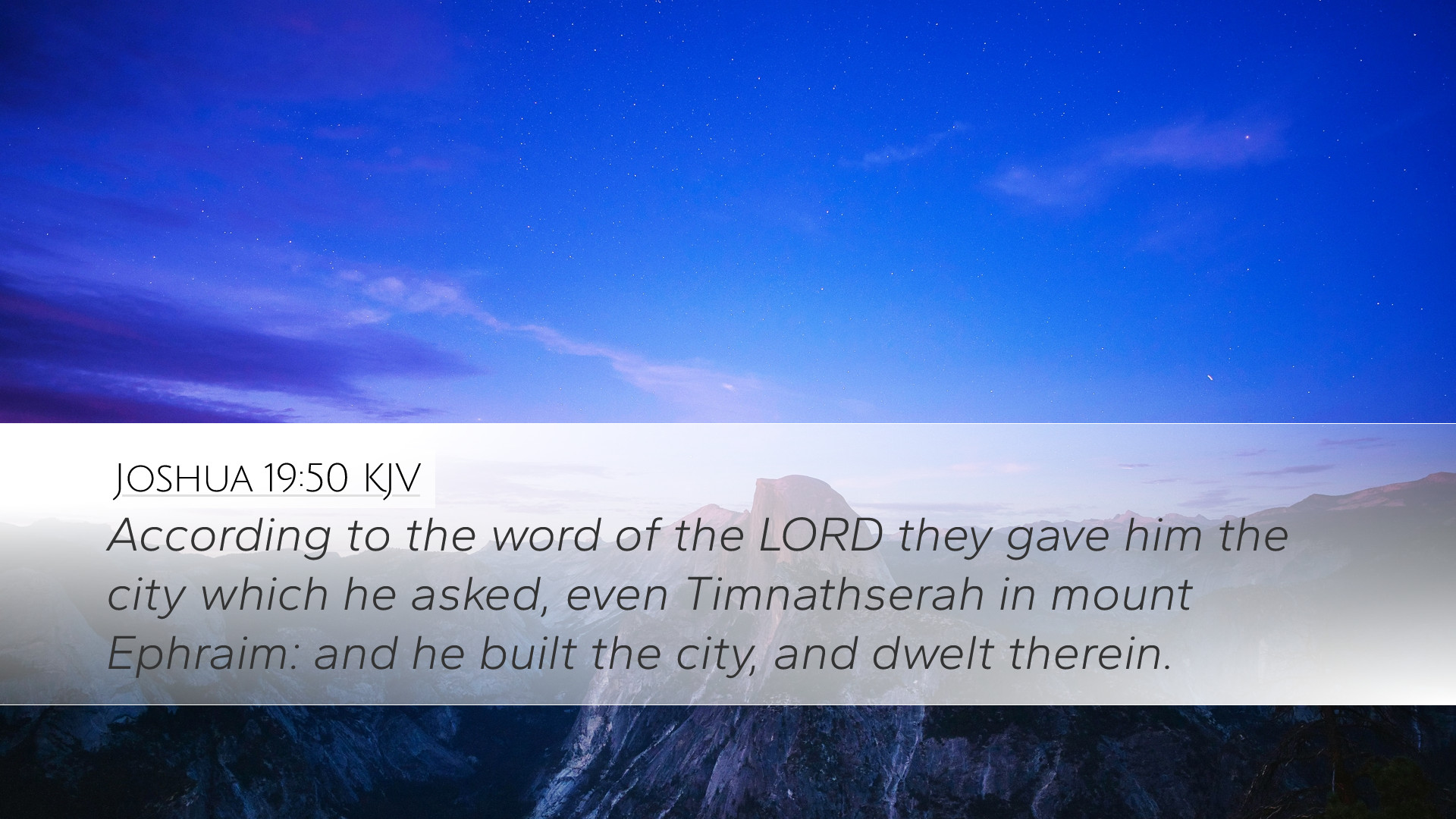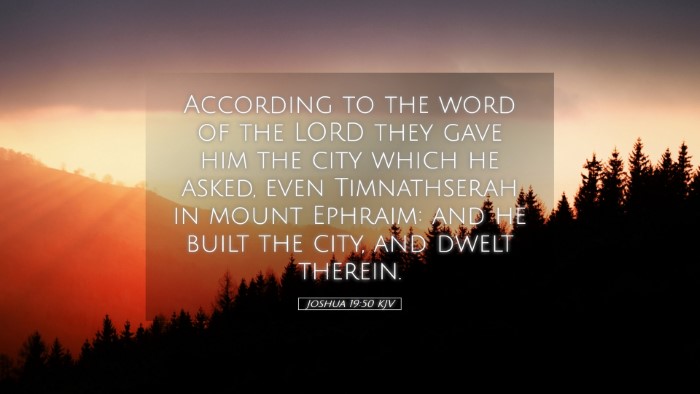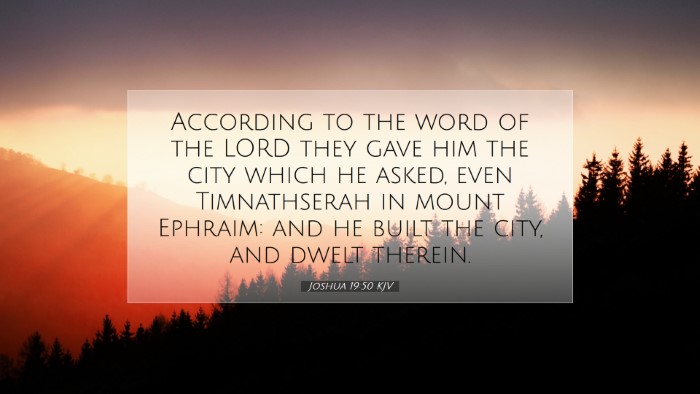Commentary on Joshua 19:50
Verse Reference: Joshua 19:50 - "According to the word of the Lord they gave him the city which he asked, even Timnathserah in mount Ephraim: and he built the city, and dwelt therein."
Context and Background
This verse falls within the broader narrative of the allocation of land among the tribes of Israel after their conquest of Canaan. Specific attention must be given to the appointment of cities and the importance of certain locations. The mention of Timnath-serah, which means "the portion of the sun," underscores its significance both geographically and symbolically.
Insights from Public Domain Commentaries
Matthew Henry's Commentary
Matthew Henry emphasizes that the fulfillment of God’s promise is central to this passage. The act of giving Timnath-serah to Joshua reflects the assurance of God to His leaders who remain faithful. Henry notes that Joshua, as a courageous and faithful servant, was rewarded not just with any city, but with a city related to his lineage and service.
- Faithfulness Rewarded: Joshua’s diligent devotion to God’s commands is mirrored in this divine allocation.
- Symbolic Importance of Timnath-serah: The city symbolizes rest and a fulfillment of promises, echoing the rest found in God’s presence.
- Constructive Action: The act of building the city reflects both Joshua's leadership and the community's role in establishing a lasting legacy.
Albert Barnes' Notes on the Bible
Barnes provides a detailed examination of the geographical and historical implications of Timnath-serah. He highlights its strategic location within the mountains of Ephraim and how it signified a place of continuous habitation and inheritance for Joshua.
- Location Significance: Being situated in the hill country, it provided protection and a vantage point over the surrounding territories.
- Historical Context: The request for this specific city is seen as Joshua's desire for a legacy that would link his name to the land of promise.
- Leadership and Legacy: By building the city, Joshua not only signs his own legacy but models for future generations the importance of remaining committed to God’s will.
Adam Clarke's Commentary
Clarke brings to light the humanitarian aspect of the allocation of cities. He signifies the impact of great leaders like Joshua on the communities they serve. Clarke argues that Joshua’s act of establishing Timnath-serah was not merely about territorial gain but was woven into the fabric of the people’s identity.
- Joshua as a Model Leader: His choices resonate with divine wisdom, making the city a beacon of faith for all Israel.
- Covenantal Fulfillment: The granting of Timnath-serah symbolizes God’s unbroken covenant with His people, a theme central throughout the book of Joshua.
- Intention Behind the City: The construction of the city serves a dual purpose: spiritual and practical, as a place for worship and habitation.
Theological Implications
Joshua 19:50 serves as a pivotal reminder of God’s faithfulness and the ongoing relationship between Him and His people. It presents a model for pastors and leaders in seeking God’s designated 'cities' or places of influence and impact in their own ministries. The theological ramifications suggest an understanding that God honors requests made in faithful service and integrity.
Application for Today
The passage not only instructs leaders on the value of obedience but also encourages them to seek God’s will in their endeavors. Timnath-serah serves as a metaphor today for every believer's life—an inheritance that deserves diligent stewardship, rooted deeply in faith.
- Leadership: Modern leaders can glean wisdom from Joshua’s character and determination to dwell within the promise of God.
- Community Building: The act of building a city resonates with contemporary calls for community and church development, emphasizing collaboration and dedication.
- Trust in Promise: Just as Joshua received his inheritance, believers today can trust in God's promises for their lives, whether personally or in ministry.
Conclusion
In summary, Joshua 19:50 encapsulates vital themes of leadership, divine promise, community inheritance, and the importance of taking action in faith. Simplistically, through careful study of this verse, one can surmise that it offers profound insights into the nature of God’s faithfulness and the practitioner's role in advocating for divine directives.


